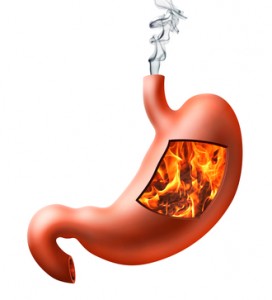 Believe it or not, acid reflux medication dangers are real, and these medications do major harm to your body. Shocking, right?
Believe it or not, acid reflux medication dangers are real, and these medications do major harm to your body. Shocking, right?
It’s true. All of those medications (Prevacid, Nexium, Zantac, Prilosec, omeprazole, even Tums) reduce stomach acid, which is what they are designed to do.
The problem is that acid reflux is actually caused by TOO LITTLE stomach acid, not too much. Counter-intuitive, right? So what happens when you have too little stomach acid? For starters, you can’t properly digest food, leading to nutritional deficiencies, particularly magnesium, calcium and vitamin B12.
A magnesium deficiency is linked to:
- Anxiety and panic attacks
- Asthma
- Blood clots
- Bowel disease
- Cystitis
- Depression
- Diabetes
- Dysmenorrhea
- Fatigue
- Heart disease
- Hypertension
- Hypoglycemia
- Inability to detoxify
- Insomnia
- Kidney disease
- Liver disease
- Migraines
- Musculoskeletal conditions
- Nerve problems
- Premenstrual syndrome
- Osteoporosis
- Raynaud’s Syndrome
- Tooth decay
A calcium deficiency is linked to:
- Delayed development
- Dermatitis
- Lethargy
- Mental confusion
- Muscle cramps
- Numbness or tingling of the fingers
- Osteoporosis
- Poor appetite
- Rickets
- Skeletal malformations
A vitamin B12 deficiency is linked to multiple neurological disorders, including
- Abnormal reflexes
- Anemia
- Anorexia
- Apathy
- Ataxia
- Balance problems
- Dementia
- Depression
- Developmental delay or regression
- Difficulty walking
- Dizziness
- Failure to thrive
- Fatigue
- Forgetfulness, memory loss
- Generalized weakness
- Hallucinations
- Hypotonia
- Impotence
- Involuntary movements
- Irritability
- Language delay
- Lower IQ
- Macrocytosis (enlarged red-blood cells)
- Mania
- Mental retardation
- Numbness or tingling
- Pallor
- Paranoia
- Personality changes
- Poor head growth
- Poor motor skills
- Poor socialization
- Poor weight gain
- Psychosis
- Restless legs
- Seizures
- Shortness of breath
- Speech problems
- Tremor
- Unsteady or abnormal gait
- Urinary or fecal incontinence
- Violent behavior
- Visual disturbances
- Weakness
Not only do acid reducers cause nutritional deficiencies, but they also take away an important component of our immune system. Stomach acid is used to kill nasty bugs, viruses, parasites and bacteria. Without enough stomach acid, guess what happens? That’s right – infection.
By prescribing proton-pump inhibitors (PPIs), doctors are putting their patients at a higher risk for infections like pneumonia and gastroenteritis, as well as getting more colds and stomach bugs.
In addition, by taking acid-reflux drugs, you’re more likely to get sick more often because your immune system can’t fight off these offenders. It also makes the rest of the gastrointestinal tract susceptible to bacterial overgrowth.
Is it worth taking acid-reflux medication? I don’t think so, and I can tell you that, as a mom, I was furious at the doctors who prescribed them to my boys for their acid reflux after I found out how truly dangerous these drugs are.
 Methylation is a subject that keeps coming up again and again for my sons and myself. It’s one of those all-encompassing issues like toxicity or gut dysbiosis because so many diseases and conditions are linked, directly or indirectly, to it or rather, a lack of it.
Methylation is a subject that keeps coming up again and again for my sons and myself. It’s one of those all-encompassing issues like toxicity or gut dysbiosis because so many diseases and conditions are linked, directly or indirectly, to it or rather, a lack of it.

